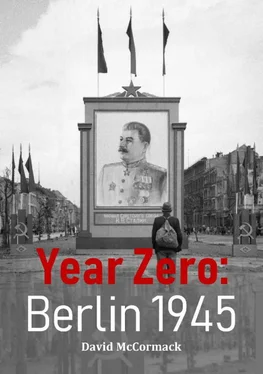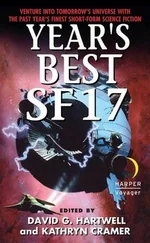Some comrades affirm that in consequence of the development of international conditions after the Second World War, wars among capitalist countries have ceased to be inevitable… These comrades are mistaken. They see the external appearances which glitter on the surface but they fail to see those profound forces which, though at present operating imperceptibly, will nevertheless determine the course of events… It is said that the contradictions between capitalism and socialism are greater than the contradictions between the capitalist countries. Theoretically this is of course true. It is true not only now, at the present time, but it was also true before the Second World War. And this the leaders of the capitalist countries did more or less understand. Yet the Second World War began not with a war against the USSR, but with a war among the capitalist countries.
After the First World War it was believed that Germany had been finally put out of action… Yet in spite of this Germany revived and rose to her feet as a great power… It is typical in this regard that none other than Britain and the USA should have helped Germany to revive economically and to raise her economic war potential. Of course, through helping Germany to revive, they intended to direct her against the USSR. However, Germany directed her forces in the first place against the Anglo-French-American bloc. When Hitler attacked the USSR, The Anglo-French-American bloc not only failed to join with Hitler, but, on the contrary, were obliged to enter into a coalition with the USSR. Consequently, the capitalist countries struggle for markets and their desire to crush their competitors turned out to be actually stronger than the contradictions between the camp of capitalism and the camp of socialism… It follows that the inevitability of wars amongst the capitalist countries remains.
It would be easy to dismiss Stalin’s assertions as wishful thinking. However, his views have some credibility in that the First World War was essentially a war amongst capitalist states. It should also not be forgotten that the unwelcome interventions by foreign powers during the 1918-20 Civil War left a lasting impression on the Soviet body-politic. There were those, including Stalin himself who thought that the capitalist powers would intervene again in Soviet affairs, given the chance to do so.
Whilst Stalin had enjoyed a good relationship with Roosevelt, his successor was far more business like and less accommodating. He was in many respects an unknown quantity. If Stalin thought that it was going to be business as usual, he was in for a rude awakening. Shortly after assuming office, Truman met with his Moscow ambassador Averell Harriman, State Secretary Edward Stettinius, Under Secretary Joseph C. Grew and Charles ‘Chip’ Bohlen. Prior to the meeting, he had stayed up late every night for a week studying the minutes of the Yalta negotiations in the map room of the White House. His nocturnal work schedule was necessary as he had been kept woefully ill-informed by his predecessor. However, thanks to his own efforts, he was now almost up to speed on the state of current affairs and international relations. Ambassador Harriman used the meeting both as a conduit to pour out his frustrations concerning relations with the Soviet Union and as an opportunity to appraise the president about some ‘unpleasant facts’ concerning Stalin’s intentions in Eastern Europe. Bohlen’s memorandum of the meeting provides a clear picture of how the tone set by Roosevelt for the conduct of U.S. relations with the Soviet Union was to harden considerably:
At the President’s request Ambassador Harriman made a brief report on his opinion of the present problems facing the United States in relation to the Soviet Union. He said that he thought the Soviet Union had two policies which they thought they could successfully pursue at the same time – one, the policy of cooperation with the United States and Great Britain, and the other, the extension of Soviet control over neighbouring states through unilateral action. He said that he thought our generosity and desire to cooperate was being misinterpreted in Moscow by certain elements around Stalin as an indication that the Soviet Government could do anything it wished without having any trouble with the United States. He said that he thought the Soviet Government did not wish to break with the Soviet States since they needed our help in order to reduce the burden of reconstruction and that he felt we had nothing to lose by standing firm on issues that were of real importance to us… The President said that he was not afraid of the Russians and that he intended to be firm but fair since in his opinion the Soviet Union needed us more than we needed them… He said that only on a give and take basis could any relations be established.
Ambassador Harriman said that in effect what we were faced with was a “barbarian invasion of Europe”, that Soviet control over any foreign country did not mean merely influence on their foreign relations but the extension of the Soviet system with secret police, extinction of freedom of speech, etc., and that we had to decide what should be our attitude in the face of these unpleasant facts. He added that he was not pessimistic and felt that we could arrive at a workable basis with the Russians but that this would require a reconsideration of our policy and the abandonment of the illusion that for the immediate future the Soviet Government was going to act in accordance with the principles which the rest of the world held to in international affairs…
It could be argued that the assumption made by Harriman and Truman that the Soviet Union would be dependent on aid from the U.S. was as big a miscalculation as that made by Stalin regarding future American policy. With neither side really understanding the other, the scene was set for a complete break in relations and the beginnings of the Cold War.
Truman had two trump cards to play in his dealings with Stalin, his nation’s economic power, and since the successful Trinity Test, a monopoly in nuclear weaponry. He was therefore determined to wring as many concessions from the Soviet dictator as possible. American industrial and economic might was indeed something to behold as the economy had more than doubled during the war years. The days of harsh economic tariffs were well and truly over as this powerhouse nation was now ready and able to trade on a worldwide scale. Furthermore, many former allies now looked to the U.S. for financial relief. Bloodied and battered Britain received a three and three quarter million dollar loan which was partially used to found the welfare state. The Soviet Union too considered tapping into this seemingly inexhaustible well of prosperity, but later pulled-out of negotiations, regarding the political cost as being unacceptable.
The nuclear monopoly provided tantalising political possibilities which Truman was willing to exploit whilst the going was good. The timing and manner of the announcement of the successful Trinity Test was discussed by Truman and Churchill during a break at the Potsdam Conference. Truman mused, ‘I think. I had best just tell him after one of our meetings that we have an entirely novel form of bomb, something quite out of the ordinary, which we think will have decisive effects upon the Japanese will to continue the war’. Churchill agreed, albeit with some deep-seated concerns as he contemplated the ever growing economic and military power of the U.S. vis-a-vis the declining power of Great Britain. Whilst the nineteenth-century had belonged to the British, the twentieth-century unquestionably belonged to the Americans.
After a particularly difficult and combative session on 24 July 1945, Truman casually sauntered over to where Stalin was sitting. Churchill knew what was going to happen and was determined to catch not just every word, but also the Soviet Dictator’s reaction. Speaking through Vladimir Pavlov (Stalin’s interpreter), Truman casually stated that America now possessed ‘a weapon of unusual destructive force’. Equally casually, Stalin replied, ‘Glad to hear it. I hope you will make good use of it against the Japanese’. Churchill later recalled the encounter, stating:
Читать дальше












